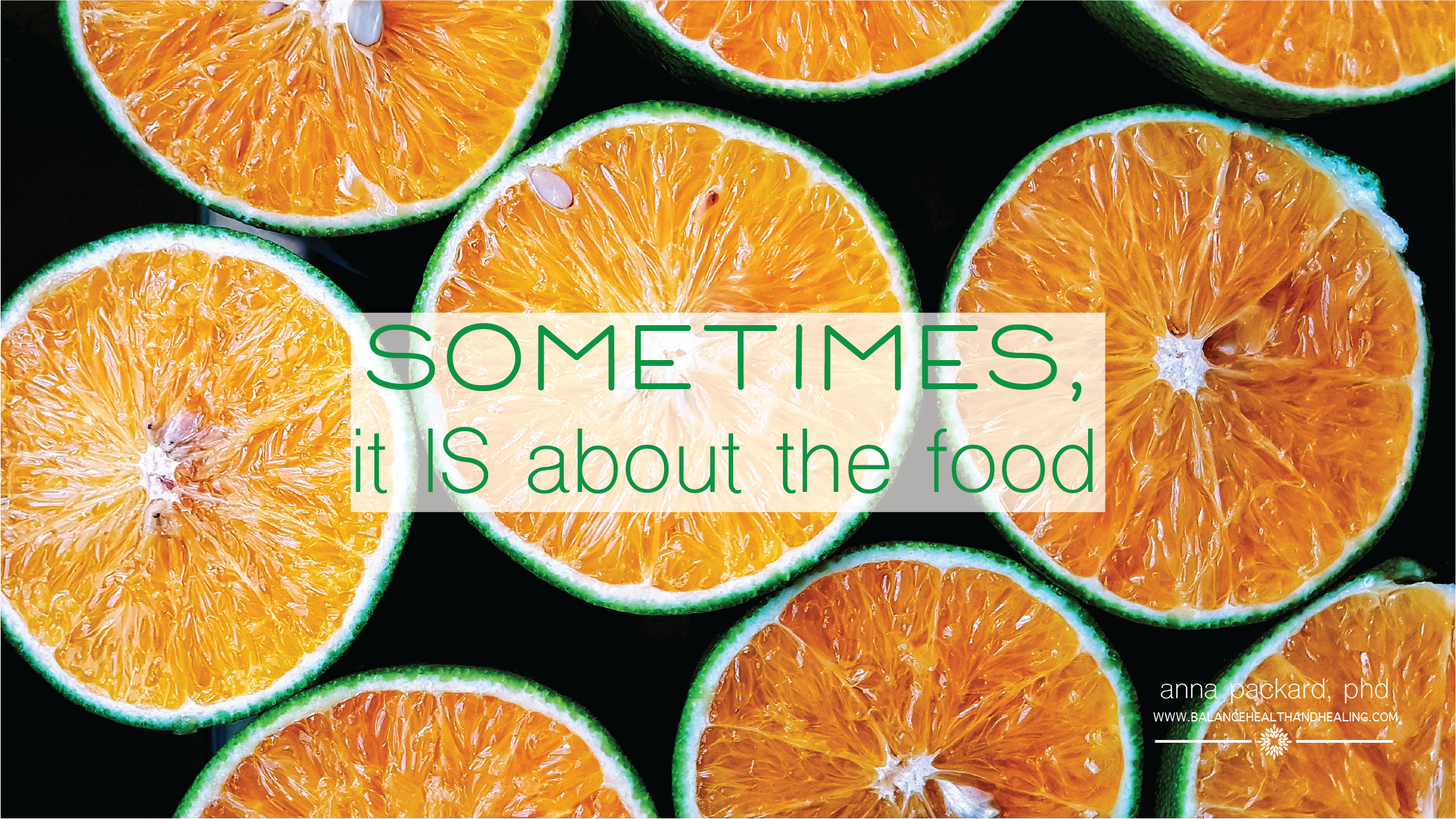A common misunderstanding about eating disorders is that it’s all about food. It’s not. People may think it’s all about the food because even the diagnostic title is about food: eating disorders. However, eating disorders are highly complex diseases created and maintained due to a variety of biological, psychological, social, emotional and physical reasons. One of the reasons I love working with eating disorder clients is because each client’s experience is unique and often complex.
But at the end of the day, it is also about the food.
This time of year so many people are back on the “weight loss” bandwagon with their New Year’s resolutions. Certain foods are the “enemy” and to be avoided at all costs. And of course one should be hyper-vigilant about how much one eats and eat as little as possible.
People begin to believe that their relationship with food is literally, mind over matter. But nothing could be further from the truth.
Food is Essential
Food is essential for not only our survival but our ability to function! In the therapeutic context, I can’t help someone who is clinically depressed, or severely anxious if they are starving themselves. Their body doesn’t have the reserves it needs to regulate emotion when it is prioritizing the simple and fundamental basics of sustaining life.
“Your brain contains about a hundred billion neurons plus another trillion support cells. Most neurons fire five to fifty times a second…consequently, even though your brain only weighs three pounds, about 2 to 3 percent of bodyweight, it needs about 25 percent of the glucose in your blood” (Hansen, 2011, p. 50).
Our bodies, our brains, need us to nourish them with food. When we don’t give our bodies all the nutrients and nourishment they need, it cannot and does not function optimally. We cannot live emotionally satisfied lives with thriving relationships, when we are dieting or restricting our bodies. Our brains don’t have the flexibility nor capacity to simultaneously starve but help us thrive in other ways.
Deprivation Doesn’t Work
And someone may think, “A little restriction will be ok. It won’t impact me in other ways.” But it will. Our bodies are wired to be sensitive to food deprivation. After all, first and foremost our bodies are invested in survival.
Food deprivation can include type of food as well, not just quantity of food. Restricting, even a little, changes the way we feel and think. For example, not eating enough carbohydrates, will lead to feelings of irritability and possibly even depression, difficulty focusing, concentrating and fatigue.
When you made your New Year’s resolutions, I doubt anyone resolved to “feel crappy, obsess about food, feel more anxious and depressed, and have worse relationships.” So instead of focusing on restriction and weight loss, let’s focus on nourishing our bodies and our brains so we can live the emotionally, physically, and relationally fulfilling year we want!
Join me in eating some chocolate. Our brains and our bodies will thank us!
Reference
Hanson, R (2011). Just one thing: Developing a buddha brain one simple practice at a time. New Harbinger Publications. Oakland, CA.

